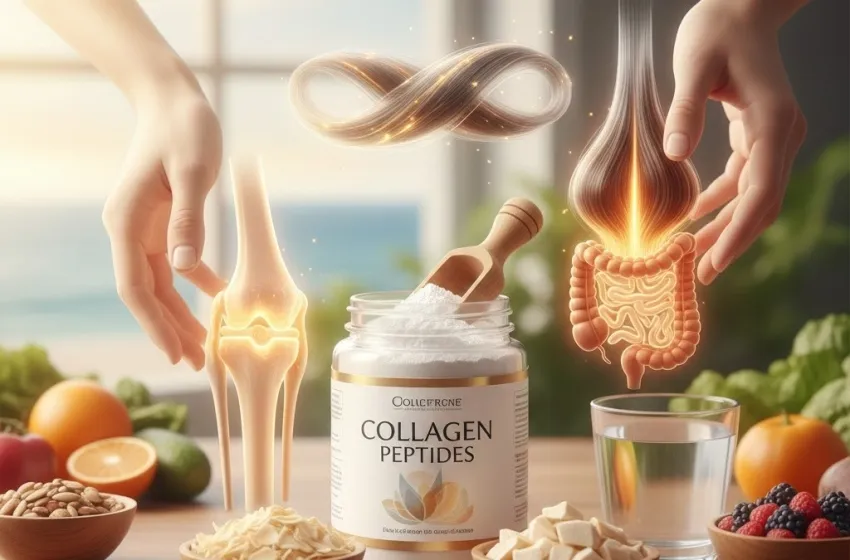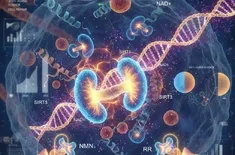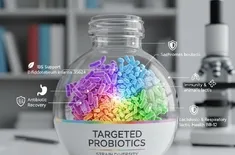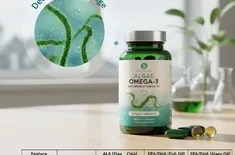Collagen peptides offer proven benefits for joint pain, tendon strength, and gut health repair
For years, collagen has reigned supreme in the beauty industry, hailed as the miracle ingredient for reducing wrinkles, improving skin elasticity, and giving you that enviable youthful glow. While its benefits for the skin are well-documented, focusing on only the dermal layer is a significant disservice to this most abundant protein in the human body. The notion that collagen only helps skin is a pervasive myth that overshadows its profound and scientifically proven benefits for much deeper, more critical bodily systems.
The true power of collagen peptides lies in their systemic impact—they are fundamental building blocks for your bones, cartilage, ligaments, tendons, blood vessels, and the lining of your gut. As a supplement, hydrolyzed collagen, or collagen peptides, represents a highly effective way to bolster these critical structures from the inside out. This comprehensive guide will debunking the myth that collagen only helps skin and delve into the transformative effects of collagen peptides on joint support, connective tissue strength, gut health, and beyond.
The Core of the Matter: What is Collagen?
Collagen is a complex protein composed primarily of the amino acids glycine, proline, and hydroxyproline. These amino acids link together to form a triple helix structure, which provides incredible tensile strength and structure to the body's tissues. Think of it as the body's scaffolding—the resilient framework that holds everything together.
As we age, typically starting in our mid-s, our body's natural collagen production begins to decline. This decline is the root cause of many age-related issues, from sagging skin and fine lines to joint stiffness and decreased bone density. Supplementing with collagen peptides—which are essentially collagen that has been broken down (hydrolyzed) into smaller, easily digestible pieces—provides the raw materials the body needs to combat this decline.
Understanding Collagen Types
The human body contains at least different collagen types, but a handful are most relevant to health and found in supplements:
- Type I Collagen: The most abundant type, making up about % of the body’s total collagen. It provides structure to skin, tendons, bones, ligaments, and other connective tissues.
- Type II Collagen: Primarily found in cartilage, making it crucial for joint support and the cushioning of joints.
- Type III Collagen: Found in reticular fibers, often alongside Type I, providing elasticity to the skin, blood vessels, and the gut lining.
Choosing a multi-source collagen product ensures you receive a spectrum of these collagen types to support various tissues throughout the body.
Debunking the Myth: More Than Just a Beauty Boost
While the cosmetic benefits are a welcome bonus, the research clearly points to collagen's essential role in internal structural repair and maintenance.
Joint Support and Tendon Strength
One of the most clinically significant benefits of collagen peptide supplementation is its profound effect on the musculoskeletal system.
Relief from Joint Pain
Collagen is the main component of cartilage, the rubbery tissue that protects the ends of bones and allows joints to glide smoothly. When we consume collagen peptides, they are absorbed and then travel to the joints, where they help to stimulate the body's own production of Type II collagen. This process is key for cartilage repair.
Multiple studies have shown that daily collagen supplementation can significantly reduce activity-related joint pain in athletes, older adults, and individuals with osteoarthritis. It doesn't just mask the pain; it provides the building blocks for the underlying structure, offering true, long-term joint support.
Tendon and Ligament Strength
Tendons connect muscle to bone, and ligaments connect bone to bone. Both are composed primarily of Type I collagen. For athletes and active individuals, supplementing with collagen peptides can play a vital role in preventing injury and accelerating recovery. The amino acids in collagen fortify the structure of these connective tissues, increasing their resilience and tensile strength. This makes collagen a powerful tool for improving overall movement health, not just skin texture.
Gut Health and Lining Repair
Another critical, yet often overlooked, function of collagen is its role in maintaining the integrity of the gastrointestinal tract.
Repairing the Gut Lining
The wall of your intestines is rich in Type III collagen. This lining acts as a barrier, controlling what is absorbed into the bloodstream. When this barrier is compromised—a condition often referred to as "leaky gut"—undigested food particles and toxins can pass into the bloodstream, triggering inflammation and immune responses.
The amino acid glycine and proline, highly concentrated in collagen, are essential for forming and repairing the connective tissue in the gut lining. Supplementation can help to "patch" this lining, supporting overall gut health, reducing inflammation, and potentially alleviating symptoms associated with digestive issues like bloating and general discomfort. In this context, collagen acts as a vital structural component, reinforcing the body’s internal defenses.
Choosing the Right Fuel: Source, Form, and Absorption
Not all collagen supplements are created equal. The source and processing method directly influence the product's quality and, most importantly, its effectiveness in your body.
Marine Collagen vs. Bovine Collagen
The two most common sources for supplements are bovine (from cows) and marine collagen (from fish skin and scales).
| Feature | Marine Collagen | Bovine Collagen |
|---|---|---|
| Primary Type | Type I | Types I & III |
| Molecular Size | Generally smaller | Larger |
| Bioavailability | Highest | High |
| Primary Benefits | Skin, bones, hair, nails | Skin, bones, joints, gut |
| Dietary Suitability | Pescatarian-friendly | Non-pescatarian |
Marine collagen is often lauded for its superior bioavailability due to its smaller peptide size, meaning it is absorbed more rapidly and efficiently into the bloodstream. This makes it an excellent choice for targeted benefits to skin, hair growth, and nail strength, though both marine and bovine sources provide comprehensive benefits.
Bioavailability is Key: The Power of Peptides
The term collagen peptides is crucial. Whole collagen protein is too large to be effectively absorbed through the intestinal wall. The hydrolyzation process breaks the protein down into small, digestible amino acid chains, or peptides. This high bioavailability ensures that the essential amino acids—the building blocks—are readily available for the body to use wherever they are needed, whether that’s stimulating new collagen production in the cartilage for joint support or fortifying the gut lining.
A Quality Protein Source
While collagen is not a "complete protein" (it lacks one essential amino acid, tryptophan), it is an exceptionally high-quality protein source rich in the key amino acids that are often underrepresented in a standard diet. Adding a scoop of collagen peptides to your daily routine can contribute significantly to your overall protein intake, supporting muscle maintenance and satiety. For this reason, it is an ideal supplement to pair with a varied diet that provides all essential amino acids.
Broadening the Horizon: Additional Benefits
Beyond its structural and repair capabilities, collagen plays a supporting role in several other areas of wellness.
Hair Growth and Nail Strength
Just like the skin, hair and nails rely on collagen for their structural integrity. Supplementing with collagen peptides provides the necessary amino acids to strengthen the hair follicle, potentially promoting thicker, stronger hair growth and reducing breakage. For brittle nails, the evidence is strong that daily intake can improve nail growth rate and decrease the frequency of breakage and peeling.
Muscle Mass and Recovery
While whey protein is the traditional choice for muscle building, collagen's high glycine content is important for muscle metabolism and the formation of creatine. Paired with resistance exercise, collagen supplementation has been shown to support the increase of lean muscle mass and accelerate post-workout recovery by providing amino acids to repair connective tissues surrounding the muscles.
Conclusion: A Foundation of Wellness
Collagen peptides are clearly more than just skin deep. Their scientifically backed benefits extend far into the core of human health, supporting fundamental structural integrity from the cushioning cartilage of your joints to the critical barrier of your gut lining. By choosing a high-quality supplement with high bioavailability—such as marine collagen or a blend of different collagen types—you are providing your body with a potent protein source rich in the amino acids necessary to combat age-related decline, enhance joint support, improve gut health, and promote stronger hair growth. Debunking the myth that collagen only helps skin reveals a pathway to comprehensive, inside-out wellness.



































